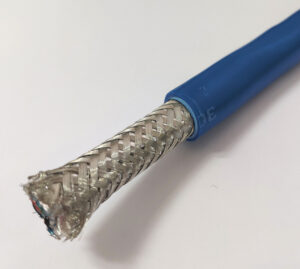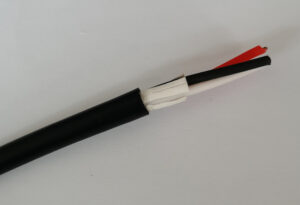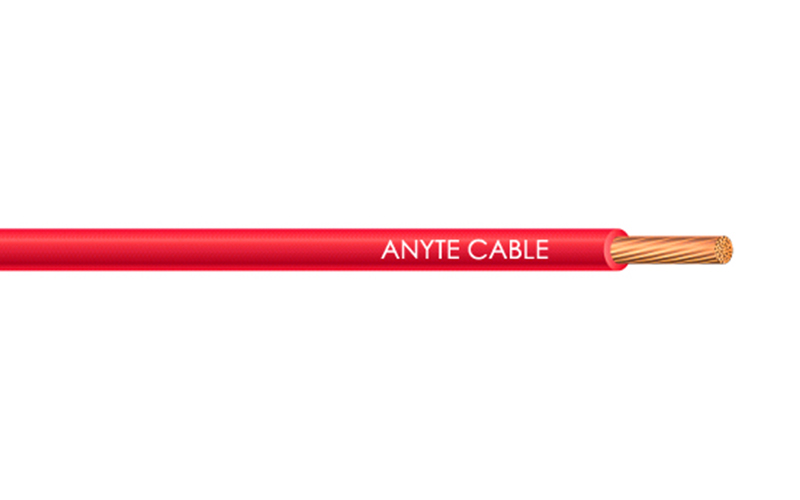Introduction
Irrigation cables play a crucial role in modern agriculture, serving as the lifeline that ensures crops receive the necessary water for growth. In this article, we’ll explore the significance of it and discuss their key features and benefits. We’ll delve into how these cables contribute to efficient water management, crop health, and overall agricultural productivity.

Enhanced Durability
They are essential components in modern agriculture and landscaping, designed to deliver water efficiently to plants and crops. Their durability is crucial, as they are often exposed to harsh environmental conditions and mechanical stress. Here, we’ll discuss the materials and construction of irrigation cables that contribute to their durability and how this durability leads to long-term cost savings and reduced maintenance needs.
-
Materials and Construction
- High-Quality Materials: They are typically made from high-quality materials such as polyethylene or PVC, known for their durability and resistance to abrasion and chemicals.
- Reinforced Layers: Many irrigation cables feature reinforced layers, such as polyester or fiberglass, which enhance their strength and resistance to stretching and tearing.
- UV Stabilizers: To withstand prolonged exposure to sunlight, they often contain UV stabilizers that prevent degradation and ensure long-term performance.
- Flexible Design: The construction of irrigation cables includes a flexible design that allows them to adapt to various terrains and resist kinking, enhancing their longevity.
-
Long-Term Cost Savings
- Reduced Replacement Costs: Due to their durability, they have a longer lifespan, reducing the need for frequent replacements and lowering overall costs.
- Decreased Maintenance Needs: Irrigation cables that are built to last require less maintenance over time, saving both time and money for users.
- Increased Efficiency: Durable it maintain their performance over time, ensuring consistent water delivery and maximizing the efficiency of irrigation systems.
-
Reduced Environmental Impact
- Sustainability: By choosing durable irrigation cables, users can reduce the environmental impact associated with the production and disposal of shorter-lived alternatives.
- Water Conservation: Reliable it help to conserve water by ensuring that it is delivered efficiently to plants, reducing wastage.
Weather Resistance
They are designed to withstand a wide range of environmental conditions, making them ideal for use in outdoor irrigation systems. One of the key features of it is their weather resistance, which allows them to maintain reliable performance in various weather conditions.
These cables are typically made from high-quality materials that are resistant to moisture, UV rays, and temperature fluctuations. This ensures that the cables remain functional and durable, even when exposed to harsh weather conditions such as rain, snow, and extreme heat.
The weather-resistant properties of irrigation cables make them ideal for use in outdoor irrigation systems, where they may be exposed to the elements. Their ability to withstand these conditions ensures that they can continue to provide reliable performance over time, without the need for frequent maintenance or replacement.

Customization and Compatibility
Irrigation cables play a crucial role in modern irrigation systems, providing the necessary communication between controllers and various irrigation components. Understanding their customization options and compatibility is essential for efficient irrigation management.
1. Customization for Specific Systems:
- They can be customized in terms of length, connectors, and wiring configurations to suit specific irrigation setups.
- Custom lengths ensure cables reach all components, reducing the need for extensions or excess cable that can lead to clutter and potential damage.
2. Compatibility with Equipment:
- They are compatible with a wide range of irrigation equipment, including valves, sensors, and weather stations.
- They can be connected to different types of controllers, such as traditional wired controllers or modern smart controllers, offering flexibility in system design.
3. Connection Types:
- They are available with various connector types, such as waterproof connectors or modular connectors, ensuring compatibility with different equipment models and brands.
- Some cables feature universal connectors, simplifying installation and maintenance processes.
4. Communication Protocols:
- Irrigation cables support various communication protocols, such as RS-485 or Ethernet, enabling compatibility with different irrigation controllers and software systems.
- This compatibility allows for seamless integration into existing irrigation networks or compatibility with future upgrades.
5. Sensor Compatibility:
- They can be used to connect various sensors, such as soil moisture sensors or weather sensors, providing data for more precise irrigation scheduling.
- Compatibility with different sensor types enhances the irrigation system’s ability to respond to changing environmental conditions.
6. Ease of Installation and Maintenance:
- The flexibility and compatibility of irrigation cables simplify installation and maintenance tasks, reducing downtime and ensuring optimal system performance.
- Modular designs and standardized connectors make it easy to replace or upgrade cables as needed, extending the system’s lifespan.
Ease of Installation
They are designed for ease of installation, making them a practical choice for agricultural and landscaping projects. These cables are typically lightweight and flexible, allowing them to be easily maneuvered and laid out in the desired configuration.
One of the key features that contribute to the ease of installation of it is their flexibility. This allows the cables to be easily bent and shaped around obstacles, such as plants and trees, without the need for specialized tools or equipment. Additionally, the cables can be easily cut to the desired length, further simplifying the installation process.
Another factor that contributes to the ease of installation of it is their durability. These cables are designed to withstand harsh environmental conditions, such as exposure to sunlight and moisture, ensuring that they remain intact and functional even after installation.
The ease of installation of it translates to significant time and effort savings during the installation process. Compared to traditional irrigation systems that require complex piping and fittings, They can be installed quickly and efficiently, reducing labor costs and project timelines.
Overall, the ease of installation of irrigation cables makes them a practical and cost-effective choice for irrigation systems in agricultural and landscaping applications. Their flexibility, durability, and simplicity of installation make them an attractive option for anyone looking to install an efficient and reliable irrigation system.
Efficient Water Distribution
Irrigation cables play a crucial role in ensuring efficient water distribution in irrigation systems. These cables are designed to deliver water directly to the root zone of plants, minimizing wastage and maximizing the effectiveness of irrigation.
One key feature of it is their ability to deliver water precisely where it is needed. The cables are typically buried underground or placed on the soil surface, allowing them to deliver water directly to the root zone of plants. This targeted approach ensures that water is not wasted by being sprayed over a wide area where it is not needed.
In addition to delivering water efficiently, they also play a role in optimizing water usage. By delivering water directly to the root zone, these cables help to reduce evaporation and runoff, ensuring that more of the water is actually used by the plants. This not only conserves water but also helps to promote plant health by ensuring that the plants receive an adequate and consistent water supply.
Furthermore, they can also be used to deliver nutrients directly to the root zone of plants. This can help to promote plant growth and health, as the plants are able to access the nutrients they need more effectively.
They are a valuable tool in promoting efficient water distribution and optimizing water usage in irrigation systems. Their ability to deliver water directly to the root zone of plants helps to minimize wastage and promote plant health, making them an essential component of modern irrigation systems.
Conclusion
Irrigation cables are essential components in modern agriculture and landscaping, designed to deliver water efficiently to plants and crops. Their durability, weather resistance, and customization options make them a reliable choice for optimizing water usage and promoting plant health.
The high-quality materials and construction of it ensure long-term cost savings and reduced maintenance needs. Their compatibility with various equipment and communication protocols enhances the efficiency of irrigation systems, while their ease of installation makes them a practical choice for agricultural and landscaping projects.
Overall, choosing the right irrigation cables is crucial for maximizing the efficiency and effectiveness of irrigation systems. By understanding their key features and benefits, users can ensure optimal water distribution, promote plant health, and achieve sustainable irrigation practices.




